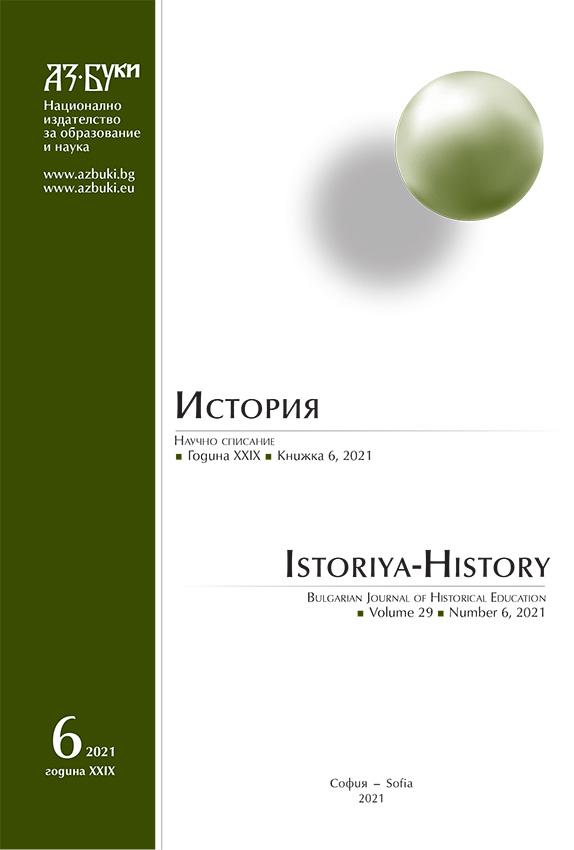Bulgarian Blagoev Commune in the Context of the Formation of the Soviet Totalitarian System (1920s – 1930s)
Bulgarian Blagoev Commune in the Context of the Formation of the Soviet Totalitarian System (1920s – 1930s)
Author(s): Mykhailo Zhurba, Viktor Dotsenko, Nataliia ChernihovetsSubject(s): History, Social Sciences, Education, Comparative history, Diplomatic history, Economic history, Local History / Microhistory, Military history, Political history, Social history, Recent History (1900 till today), Special Historiographies:, Adult Education, State/Government and Education, Family and social welfare, Victimology, Political Ecology, Interwar Period (1920 - 1939), History of Communism, Social Norms / Social Control, Inclusive Education / Inclusion, Distance learning / e-learning
Published by: Национално издателство за образование и наука „Аз-буки“
Keywords: political emigrants; commune; Bolshevik regime; production cooperation; collectivisation; repressions
Summary/Abstract: Based on the analysis of the sources and academic literature, the article comprehensively presents a critical analysis of the activities of the Bulgarian Blagoev Commune. The article covers the details of the organisation and functioning of the collective, the tasks set by the Bolshevik authorities. The article characterises the process of adaptation to a different country, the relations of the members of the commune with the local population and ties to Ukrainian associations. The results and consequences of the economic and financial activities of the international commune on the territory of Ukraine are generalised. The authors draw attention to the fact that the conscientious work of the members of the commune was used by the political regime under the slogans of building a bright future for the sake of an unrealistic socialist goal. Special focus is put on the party and public activities of the members of the commune. The contradictory nature of the position of the Soviet government regarding the newly created collective, the evolution of its party and state policy and the tragic fate of the leadership of the commune in the 1930s are discussed. The article outlines the recommendations on the practical application of the historical experience of the international collective in the context of international cooperation.
Journal: История
- Issue Year: 29/2021
- Issue No: 6
- Page Range: 609-620
- Page Count: 12
- Language: English
- Content File-PDF

